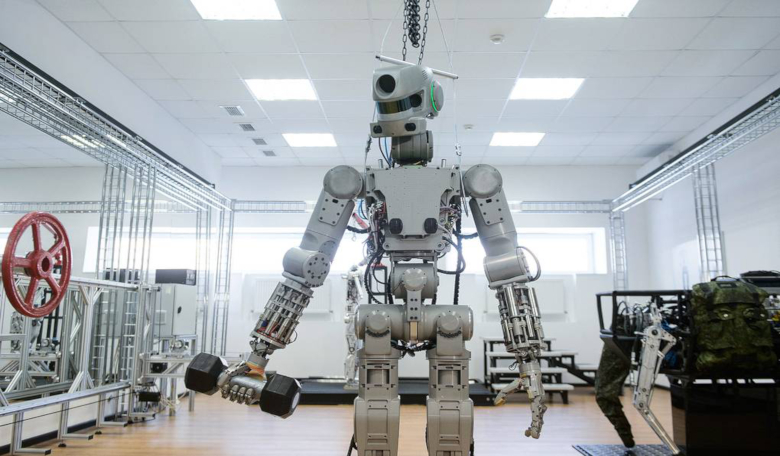When Russia's space agency Roscosmos sends up some cargo to the International Space Station (ISS) on Thursday 22 August, it not only marks the start of flight trials of the Soyuz-MS spacecraft and the Soyuz-2.1a carrier rocket, but it will also carry an interesting payload onboard; a humanoid robot known as Skybot F-850.
Previously called Fedor, which stands for “Final Experimental Demonstration Object Research,” Skybot F-850 replicates the movements of a remote operator and can also perform a limited set of actions autonomously.
The life-size robot was developed by the Android Technology Company and the Advanced Research Fund on the instruction of the Russian Emergencies Ministry. It will join the Russian crew currently stationed at the ISS to continue the tests of "the space-designated anthropomorphous system," said Dmitry Rogozin, director general of Roscosmos.
According to the director general, Russian cosmonaut Alexander Skvortsov has undergone training required to operate the robot, and was ready to welcome the ‘crew’s assistant’ when Skybot F-850 arrives at the ISS on 24 August.
In its previous incarnation, Fedor went by the name of Avatar and was created initially to carry out rescue operations, but the robot was later repurposed to include space operations.
Since then, the renamed Skybot F-850 (where F stands stands for its affiliation with the Fedor family of robots) has grabbed headlines by having its own Twitter account set up and by displaying its fine motor skills in a lamentable photo opportunity.
Back in 2017, Rogozin shared a picture via Twitter of the robot shooting guns, saying that, “Platform Robot F.E.D.O.R. showed two-handed shooting skills.” Shortly after however Rogozin clarified they are “not creating a Terminator, but artificial intelligence that will be of great practical significance in various fields."
The robot is expected to stay in orbit for a week and a half, before heading back to Earth. One of the goals of Skybot F-850 is to journey to the moon ahead of crewed missions, so that it can study all the risks and learn to cope with them, Rogozin told Russian news agency Tass last month.
Skybot F-850, along with its Soyuz MS-14 spacecraft ride, and the Soyuz-2.1a carrier rocket that will blast them all to the ISS, are heading to the launch pad today ahead of the scheduled launch on Thursday.
It will be the first time that the rocket will be used for sending a crewed spacecraft to orbit, albeit in this instance it will be a robotic crew, as Skybot F-850 will travel unaccompanied on its first space mission.











